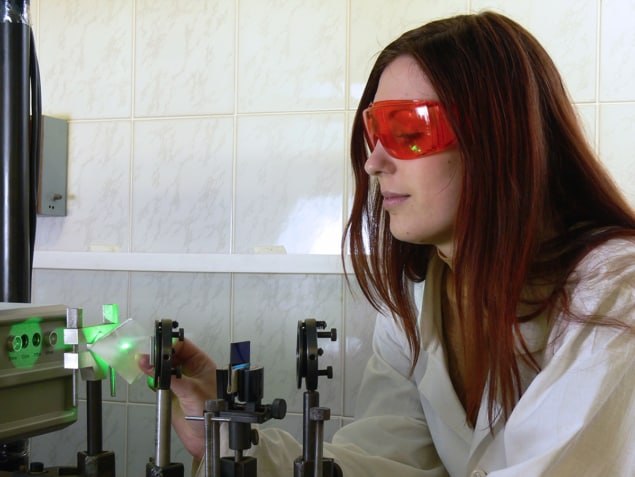
Three Nobel-prize-winning physicists claim that the European Commission is planning to “drastically cut” funding for photonics in its next €100bn research and innovation programme. Gérard Mourou, Stefan Hell and Theodore Hänsch have warned in an open letter to the commission that such a move will be disastrous for Europe’s technological goals and damage its competitiveness.
The three researchers’ target is Photonics21 – a public–private partnership supported by the European Commission to bring optical researchers and industries together. It had requested a minimum budget of €1.4bn in the Horizon Europe programme, which runs from 2021 to 2027. But in their letter, the laureates claim to have learned from “informed sources in Brussels” that the commission will instead propose around €500m.
This figure, which is barely 35% of the requested budget, would represent a 30% cut on the €700m that the photonics sector received from the EU between 2014 and 2020. The laureates say that the amount of money proposed by the commission for photonics is “not consistent” with planned support for other key digital technologies, such as artificial intelligence and microelectronics, which from 2014 to 2020 had a budget of €2.5bn.
“Europe needs to strengthen, not weaken, its industry and innovation capacity in photonics,” the laureates write, warning that without photonics technologies, Europe will not be fit for developments in quantum computing or to allow “full digital sovereignty”. They also say that the “risk of losing another key digital technology to other regions of the world is serious”.
The laureates point out that the European Commission’s recent industrial strategy identified photonics as a strategically important technology for Europe’s industrial future. The European Investment Bank has also identified photonics as a key technology that will provide secure, sovereign and resilient digital infrastructure.
This support, they argue, underlines how essential photonics is to four EU objectives: digital transformation of industry; the European Green deal; digital sovereignty and resilient digital infrastructure; and strengthening strategic value chains across key sectors. According to Photonics21, the European photonics market could triple in value to more than €200bn by 2030, while some 700 000 new jobs could be created in the sector in Europe by 2030.

Nobel prize-winners warn that Horizon Europe programme will put photonics sector at risk
In their letter, the laureates call for photonics funding to match Europe’s digital ambitions. “Genuine advancements in photonics are truly essential for powering the future European digital economy,” they write. “They are often driven by fundamental research…We therefore kindly request you to reconsider any cuts to the photonics partnership given its vital cross-sectional importance for Europe.”
This is not the first time the photonics community has raised concerns about funding and the European Commission’s view of the sector. Early last year Mourou, Hell and Hänsch wrote another open letter to the Commission calling for it to recognize photonics as a vital research area and add it as the “tenth technology priority” in the upcoming Horizon Europe programme. At the end of 2018 the European Photonics Industry Consortium released a statement making a similar request and criticizing the Commission’s proposed budget.
